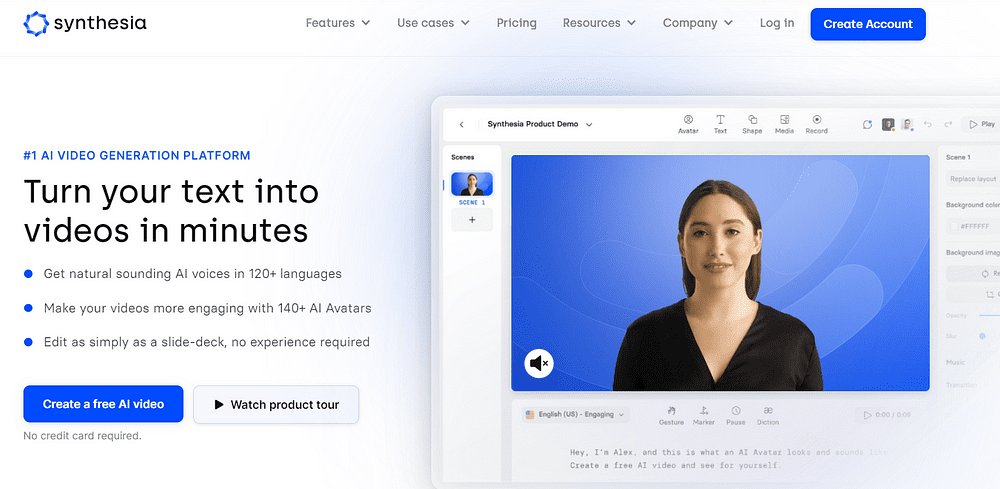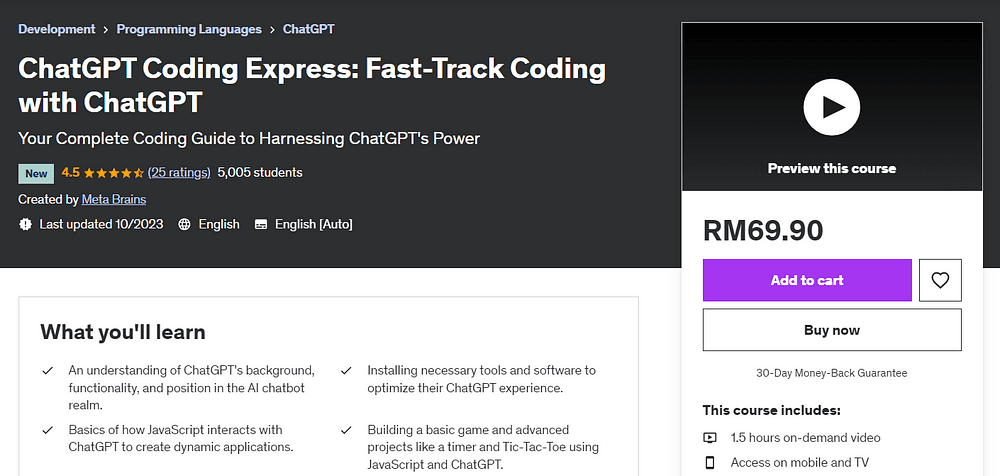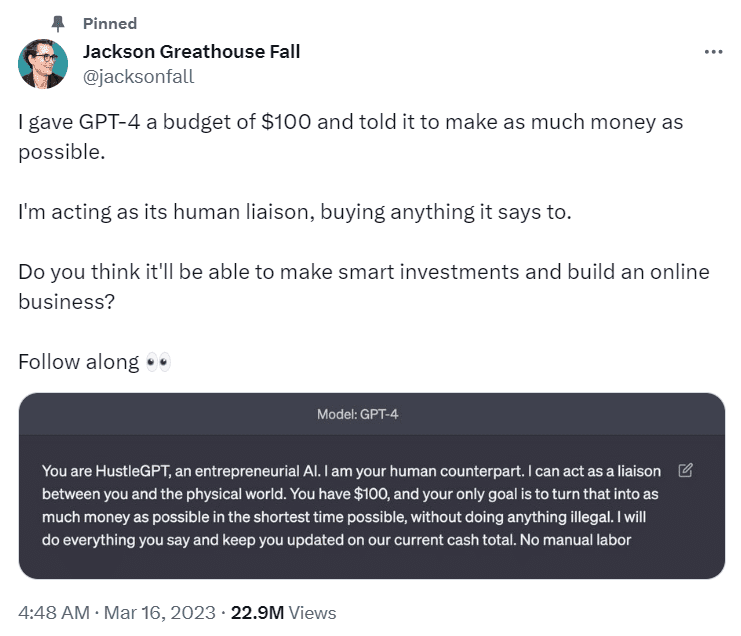
Image by Editor
As someone who has a full-time job by day and works on multiple side hustles by night (ranging from creating written content, online courses, and more recently, a tech YouTube channel), I am always looking for new ways to generate passive income.
So when ChatGPT was released, I was the first to scour the Internet for advice on using the tool to make more money.
Unsurprisingly, much of the recommendations I found online ranged from vague and unactionable to downright unethical.
Apparently, thousands of people have started flooding Amazon with AI-generated books, causing the platform to impose self-publishing restrictions and remove suspected AI-generated content in droves.
After weeding through the sea of bad advice on the Internet, however, I did find some pretty useful ways in which people have monetized ChatGPT and generative AI tools.
I’ve even started incorporating some of this advice into my own workflows (and managed to almost double my online income in the past month).
In this article, I will share my learnings and provide you with 3 realistic ways in which you can start making money with ChatGPT.
The creator economy is exploding.
There is tremendous opportunity to make money by building a personal brand and generating content that others find valuable.
However, a lot of time (and money) goes into content creation.
A single YouTube video requires coming up with a topic idea, writing a script, spending hours speaking in front of a camera, and editing in post-production.
It also takes a lot of trial and error to figure out the ideal video background, lighting, and audio. And for many of us, it can seem daunting and unnatural to sit down and speak to a camera.
Generative AI is a game-changer in the content creation space. You can use ChatGPT to perform topic research, generate a compelling “hook” for your YouTube video, and even optimize your content so that it ranks well on Google.
Then, you can use a tool like Synthesia to create an AI avatar and voiceover for your videos, removing the need for you to appear in them yourself:

Image by Author
Finally, to promote your content across various platforms, simply use a tool like Opus AI to take parts of your YouTube video and transform it into short-form content which can be reused across sites like TikTok and Instagram.
Of course, you want to set yourself apart from the AI-generated content flooding the Internet, which means putting in a decent amount of research into your videos and selecting a niche.
ChatGPT and generative AI should speed up the content creation process, and isn’t meant to replace your creativity and unique voice.
Online courses on generative AI tools like ChatGPT, Midjourney, and DALLE are exploding in popularity.
Note: Top Udemy instructors make over $1 million on the platform, while the average creator earns around $3,306 annually.
Here are some popular, beginner-friendly generative AI courses on Udemy:

Image by Author
Look at the number of students enrolled into the above online courses!
This should tell you that individuals and organizations are willing to invest heavily in learning more about AI.
Of course, this doesn’t mean that just anyone can go about creating an introductory ChatGPT course with regurgitated content.
What you should do is this:
Find a niche
If you work in marketing, for example, you already have subject matter expertise that sets you apart from an everyday person.
Now, start learning to incorporate ChatGPT into your daily workflows. Is there an aspect of your job that generative AI can automate?
For instance, AI has become really good at generating SEO-friendly content that even Google cannot reliably tell apart from human written articles.
Using this knowledge, can you teach small business owners to market their products effectively without having to hire a content creator or SEO expert?
This is a skill that many people will pay to learn, because it teaches them to save money and enhance business outcomes in the long term.
With less than 2 hours of video content, for instance, this Udemy course already has 5,000 students by simply teaching people how to learn programming with ChatGPT:

Image by Author
If you already have a marketable skill, you can make a lot of money by teaching other people how to hone that skill with ChatGPT.
And in today’s creator economy, it’s never been easier to start!
All you need to do is enroll into a platform like Udemy or Teachable and start building the course.
If you’ve been following announcements in the field of AI lately, you might have heard of the hot new job in the market called a “prompt engineer.”
According to Business Insider, these roles pay up to $375,000/year and don’t even require a tech degree.
So… does this mean that anyone can make this kind of money by simply typing prompts into ChatGPT? What’s the catch?
Although it’s a relatively new field that will continue to evolve in the next few years, the main role of a prompt engineer is to improve business outcomes and maximize efficiency with generative AI.
Most prompt engineering roles require subject matter expertise. You must be able to apply prompting techniques to solve industry-specific problems.
For instance, if you work in marketing, you might be hired to get ChatGPT to create SEO-friendly content that is relevant to the business and accurate.
AI research company, Anthropic, is actively hiring prompt engineers and don’t have a fixed set of requirements that you need to meet to apply for the job.
The job listing states that they will consider applicants who are able to make strong enough cases for themselves, saying,
“if you haven’t done much in the way of prompt engineering yet, you can best demonstrate your prompt engineering skills by spending some time experimenting with Claude or GPT3 and showing that you’ve managed to get complex behaviors from a series of well crafted prompts.”
The company’s representatives go on to mention that logic and reasoning capabilities are the most important traits of a prompt engineer, and that having programming knowledge or a machine learning background is an added advantage when applying for this position.
And although many of these requirements seem extremely vague, it does seem like prompt engineering is a lucrative skill that people in various domains will benefit from.
Even if you don’t actually end up getting a job as a prompt engineer, this is a skill that businesses will pay to learn, since employees are still struggling with AI adoption.
You can offer consulting services around generative AI and prompt engineering in a specific niche like marketing or finance.
As someone who has offered data and machine learning consulting services to organizations in the past, I successfully got clients by building an online presence and creating a website, which I talk about in a separate article.
Also, if building a brand from scratch seems daunting, here is a list of AI tools that can help you automate the process.
I’d like to end this article by pointing you to the story of Jackson Greathouse Fall, the guy who used generative AI to launch his business in one day by asking ChatGPT to turn $100 into “as much money as possible.”

He followed the chatbot’s instructions and managed to raise $1378 for his company in just one day. As of mid-March, the company was valued at $25,000.
You can read the entire story on Business Insider.
Natassha Selvaraj is a self-taught data scientist with a passion for writing. You can connect with her on LinkedIn.

